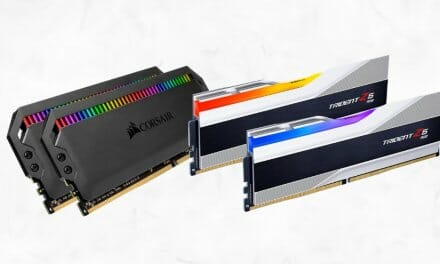Think about what it would be like if our ancestors could see what we do now. They would be amazed that we can pay for things with a single tap on a phone, which would be as amazing to them as the wheel was to us.
From barter systems to cryptocurrencies, the history of money exchanges is full of new ideas and shows how smart people are. It’s a story that keeps going, and we’re in an exciting part right now.
Why Understanding Financial Technologies is Essential
Understanding financial technologies is no longer reserved for tech-savvy individuals or financial experts, it’s essential for everyone. As money management becomes more digital and interconnected, being aware of the latest tools and how to use them is crucial.
Think of it as learning a new language that’s quickly becoming the global norm for financial communication. Whether it’s mobile payments, online banking, cryptocurrencies, or AI-driven investment, financial technologies empower us to control our finances more efficiently and securely.
Accepting this idea is like accepting a future in which our finances are more open, easy to understand, and responding to our needs. It’s about getting the information we need in a world that is always changing.
Mobile Payments and Wallets
Mobile payments and wallets are now essential to our everyday lives. Imagine that you could pay for anything, from a cup of coffee to a car, with the touch of a button. It’s the same as putting a whole bank in your pocket. From simple moves between friends to complicated business deals, these tools have changed how we deal with money.
List of Popular Mobile Payment Platforms:
- Apple Pay: Seamless payments through Apple devices.
- Google Pay: Android’s answer to mobile payments.
- Samsung Pay: Use it virtually anywhere you can swipe your card.
- Venmo: Social payments made fun and simple.
Online Banking
Online Banking has revolutionized the way we interact with our financial institutions. Gone are the days of standing in endless queues at the bank or waiting for business hours to make a transaction. Online banking has brought the entire banking experience right to our homes, offices, and even our smartphones. It’s like having a personal banker available 24/7, ready to assist with every financial need.
Key Features of Online Banking:
- Accessibility: Access your accounts from anywhere, anytime.
- Efficiency: Pay bills, transfer funds, and manage investments with a few clicks.
- Security: Robust encryption and authentication protocols keep your money safe.
- Personalization: Custom alerts, budgeting tools, and financial insights tailored to you.
- Sustainability: Paperless transactions are not just convenient; they’re eco-friendly too.
Online banking platforms often offer additional services that complement the banking experience. Some provide investment advice, financial planning, loan calculators, and more. Banks are also collaborating with fintech companies to introduce new features, making online banking an ever-evolving space.
The Rise of Financial Technologies Around the Globe
The world is a patchwork of cultures, customs, and new ideas, and the rise of financial technologies is adding a new pattern to this global design. From the cosmopolitan streets of Europe to the innovation hubs of North America, financial technologies are breaking down borders and changing the way people deal with money all over the world.
North America – PayPal and Apple Pay
In the land of opportunities, North America, PayPal and Apple Pay have become the twin pillars of online transactions. PayPal, known for its wide acceptance and secure transactions, has made playing in PayPal casinos not with Gamstop and shopping online a breeze. Apple Pay, integrated into the Apple ecosystem, provides a seamless payment experience. Both represent the innovative spirit of North America.
How They Compare:
- PayPal: Available on multiple platforms, more widely accepted.
- Apple Pay: Exclusive to Apple devices, emphasizes privacy and security.
Asia – Alipay and Paytm
The bustling marketplaces of Asia find a parallel in its financial technology landscape. Alipay and Paytm are like the shopkeepers of this digital marketplace, catering to millions with their versatile and user-friendly platforms.
Europe – Skrill and Revolut
Europe’s rich history and diversity find reflection in its financial technologies as well. Skrill, known for its cross-border payments, and Revolut, with its cutting-edge banking solutions, represent Europe’s vibrant fintech landscape. They make managing Euros, Pounds, or Swiss Francs as effortless as a leisurely stroll through a European square.
Features at a Glance:
- Skrill: Cross-border payments, forex services, and a strong emphasis on security.
- Revolut: Multi-currency accounts, instant spending notifications, and competitive exchange rates.
The Future of Financial Technologies
The future of financial technology looks exciting and full of new opportunities. We are in the middle of a revolution that is changing how we use and think about money. This revolution includes blockchain, cryptocurrencies, and artificial intelligence.
Blockchain and Cryptocurrencies
Blockchain and Cryptocurrencies are not just buzzwords; they’re the building blocks of a new financial paradigm. Imagine constructing a digital fortress where your money resides, guarded by complex algorithms and transparent transactions. Cryptocurrencies like Bitcoin and Ethereum are pioneering this movement, and blockchain is the solid foundation beneath it.
Key Components of Blockchain and Cryptocurrencies:
- Decentralization: No single entity controls the network.
- Transparency: All transactions are recorded and publicly available.
- Security: Encrypted transactions make fraud nearly impossible.
- Cryptocurrencies: Digital currencies like Bitcoin, Ethereum, and others enable fast and borderless transactions.
Cryptocurrencies – The Digital Gold Rush
Cryptocurrencies are the wild stallions of the financial frontier. Like a digital gold rush, they’ve created excitement, opportunities, and risks. Bitcoin, Ethereum, and others have turned traditional finance on its head, offering a fresh perspective on what money can be.
Concerns and Challenges
While financial technologies offer incredible benefits and conveniences, they also bring certain concerns and challenges that cannot be overlooked. As we embrace this digital revolution, it’s essential to be aware of these aspects and navigate them responsibly.
List of Key Concerns and Challenges:
- Security Concerns: As transactions move online, protecting personal information and funds becomes paramount.
- Regulation and Compliance: Striking a balance between innovation and adherence to legal requirements is often complex.
- Accessibility: Ensuring that these technologies are available to all, regardless of socio-economic status, is a continuing challenge.
- Fraud Prevention: With increased online activity, combating fraudulent activities requires robust systems and constant vigilance.
- Environmental Impact: The energy consumption of certain technologies, like cryptocurrency mining, poses environmental challenges.
- Consumer Education: Teaching users about the safe and effective use of these technologies is essential for widespread acceptance and success.
Conclusion
Financial technologies have not just reshaped our wallets; they’ve reshaped our lives. From mobile payments to cryptocurrencies, they’ve made the complex simple, the slow quick, and the impossible possible. It’s a revolution we’re all a part of, one tap, swipe, and click at a time.
FAQs
Can I use financial technologies if I’m not tech-savvy?
Absolutely! Many financial technologies are designed with user-friendliness in mind and provide tutorials to help beginners.
How do I know which online payment platform is best for me?
Consider your specific needs, such as fees, currency support, and device compatibility, then compare platforms to find the best fit.
Are cryptocurrencies legal in all countries?
No, cryptocurrencies are regulated differently around the world. Check your local laws to understand the regulations in your region.
Is my money insured with online banking?
Most reputable banks offer insurance on online accounts, but it’s best to check with your specific institution to confirm coverage.
Can I use mobile payments without an internet connection?
Some mobile payment methods may work offline for limited transactions, but an internet connection is typically required for full functionality.















